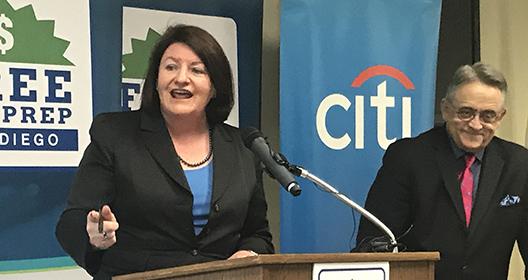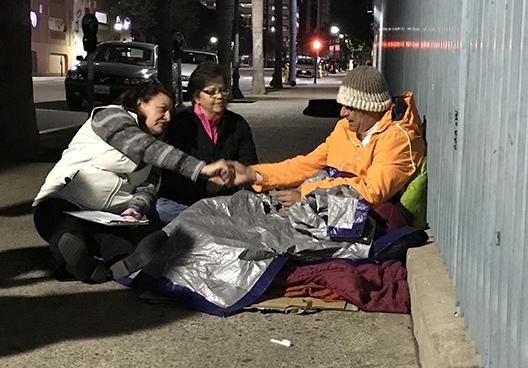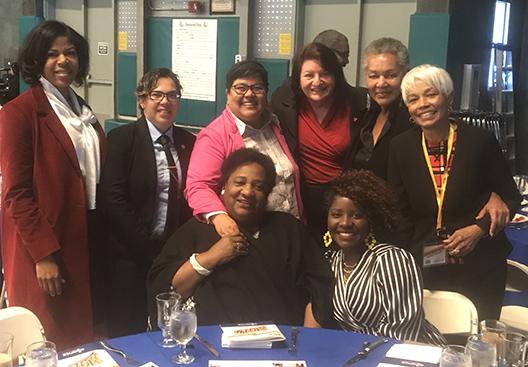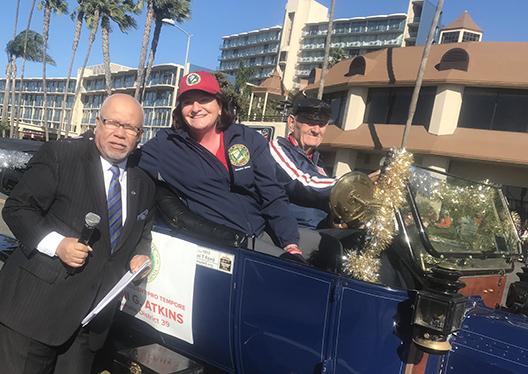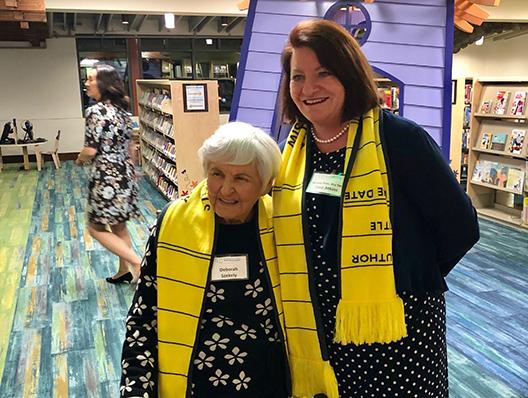February 2019 Newsletter
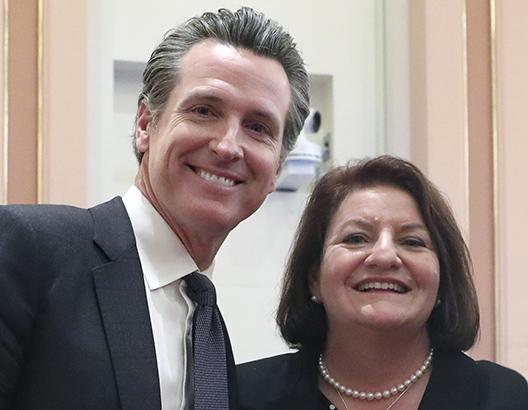 With our new Governor Gavin Newsom. |
Gavin Newsom got off to an active start as he began his tenure as California's 40th governor, proposing several ambitious policy changes and releasing a draft state budget in his first few days in office.
On Day 1, the governor announced new health care policy proposals, including making all residents up to age 26 eligible to obtain health insurance through the Medi-Cal program, helping middle-class Californians afford health insurance, and lowering the cost of prescription drugs through increased bulk purchasing power.
On Day 2, he announced proposals to strengthen California’s ability to prevent, fight and recover from devastating wildfires, including $305 million in additional funding to improve the health of our forests and enhance emergency response.
On Day 4, the governor released his proposed $209-billion budget for the fiscal year that begins on July 1, 2019. Drawing from a $21.4-billion surplus thanks to a strong economy, his budget keeps California on a positive path that balances the need for fiscal responsibility with our goal of strengthening programs that support our residents and provide opportunity.
Governor Newsom’s budget recommendation adds another $1.8 billion to our Rainy Day Fund, bringing it to $15.3 billion, and increasing the Safety Net Reserve that we created last year from $200 million to $900 million, which will protect vital services for vulnerable Californians and working families. Other prudent ideas include a one-time payment of $4.4 billion to eliminate past debts and one-time funds of $5.3 billion to pay down public employee retirement liabilities.
In addition to the health care and wildfire proposals, his budget increases grants to local governments to build affordable housing and creates new incentives to help meet local housing goals. It proposes yet another record investment in public schools and free tuition a second year of community college, increases Cal Grants to make higher education accessible to more students, and adds funding for the UC and CSU systems.
Although our economy is strong and our budget is in the best shape in a generation, many individuals and families are still struggling. That’s why Governor Newsom would like to double the impact of California’s Earned Income Tax Credit – it would be the program’s third expansion in three years. He also wants to increase CalWORKS grants to lift most children in the program out of deep poverty and send an additional $500 million to communities across the state to address homelessness.
I enjoy an excellent working relationship with Governor Newsom and look forward to working with him on this year’s budget. His proposals will be vetted thoroughly in an extensive series of Senate and Assembly Budget Committee hearings this spring, and I am confident that, working together, we will craft a budget that once again will reflect California’s values and move California forward.
|
|
In January, I was proud to participate in a 2019 launch event for Free Tax Prep San Diego, an initiative spearheaded by the Housing Commission and Citi Community Development that raises awareness of federal and state Earned Income Tax Credits and supports efforts to help working San Diegans file their tax returns.
While I was Speaker of the Assembly, I had the opportunity to play a key role in shaping incredibly important policies. But none made me prouder than leading the effort to create California’s first state-level Earned Income Tax Credit (EITC).
By many measures, our economy is extremely strong. Yet, the recovery from the Great Recession hasn’t reached everyone. Many hard-working people in San Diego and across California are still struggling to make ends meet. But thanks to sustained economic growth and responsible budgeting practices, our state budget is in its best condition in a generation.
As a result, former Governor Jerry Brown and the Legislature have been able to work together, over the past two years, to expand eligibility for the EITC, so that more and more working families benefit from a program that has proven to reduce poverty. The first expansion nearly quadrupled the number of people receiving the credit. The second expansion will be reflected in the results from this year’s tax filing.
These two expansions made more than 140,000 additional San Diegans eligible. Overall, the California EITC is expected to provide roughly $400 million in tax credits to more than 2 million households statewide in 2019.
We want to make even more improvements to the EITC this year. In the budget he proposed on January 10, Governor Gavin Newsom got this effort started by proposing a third EITC expansion. His proposal would result in $1 billion in available refunds, more than doubling the program. It would do this by increasing the credit for families with a child under 6 years old, increasing the amount of credits for workers who were made eligible in last year’s expansion, and expanding eligibility to people working full-time and earning up to $15 an hour.
As legislators, we have the ability to make the tax credit available to more families – this is money they earned, but we can’t get it to them unless they apply for it. All we can do is spread the word and make it as easy as possible.
Whether or not each of us is eligible for the EITC, it’s in everyone’s interest to make sure these refunds aren’t being left on the table. That’s because it benefits regional economies up and down CA.
When those living paycheck to paycheck receive refunds, those refunds tend to be spent on things people otherwise might not be able to afford – car repairs, home maintenance, new clothes, health care, a family dinner out at a local restaurant. This spending boosts the local small businesses that power our economy and help keep our communities active, vital and prosperous. Everyone wins.
The bottom line is this: San Diegans work hard – sometimes at multiple jobs. They sacrifice. They take care of their kids, prepare them for school, and make sure to have a nutritious meal on the table every night. It can be a real struggle.
This was the story of my own hard-working parents and our family. I never intend to forget disadvantaged families. These are the folks we’ve had in mind for the past few years as we’ve reinvested in programs, like the EITC, aimed at making things a little easier.
This tax season, the California EITC is available to households with adjusted gross incomes of up to $16,750 if there are no qualifying children, and up to $24,950 if there is one or more qualifying children. Those who are self-employed are eligible. To find out if you are eligible, call 211 or visit www.myfreetaxes.org.
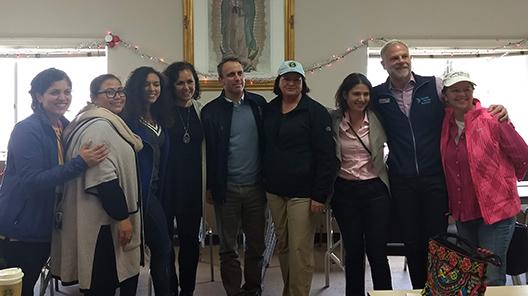 With Assemblymembers Lorena Gonzalez Fletcher and Mark Levine at the shelter on Christmas Day. |
As part of his proposed state budget for the fiscal year that begins on July 1, 2019, Governor Gavin Newsom is recommending $20 million to establish an Immigration Rapid Response Program and fund it for three years, as well as $5 million to address immigration-related emergencies that are occurring during the current fiscal year.
This announcement is a relief to the organizations in San Diego that since late October have been managing a growing emergency in our city, and it should come as welcome news to all caring San Diegans.
It’s unfortunate that this level of funding is even necessary, but it is – because the federal government has shirked its responsibility.
Since October 26, a coalition of nonprofit groups collectively known as the San Diego Rapid Response Network – led by Jewish Family Service, the local ACLU chapter and the San Diego Organizing Project – has been operating an emergency shelter and providing care and assistance for migrant families who have applied for asylum in the United States as they flee violence in their home countries.
Prior to that, the federal government had been helping these families, who arrive at our borders with little more than a bag or backpack of belongings, reach family, friends or sponsors in destinations across the country as they await their asylum proceedings. But that program stopped, and ICE agents began simply dropping families off – dozens of people at a time – at bus stations in San Diego, often with no money, no food, no place to stay, no way to get where they’re going and sometimes with significant medical issues.
The efforts of our local charitable organizations have been nothing short of heroic. When they got word of the situation, they acted immediately – setting up shelters wherever they could find adequate space, picking families up at the bus stations (and later arranging for ICE to bus families directly to the shelters) and providing nourishment, showers and hygiene, medical screenings and travel assistance.
I have been actively engaged on the issue, working with former Governor Jerry Brown and Governor Newsom. On two occasions – on Christmas Day and in early January – I visited the shelter and saw firsthand the extraordinary, compassionate work being done by nonprofit staff members and volunteers, as well as state Department of Social Services staff. These visits reinforced my opinion that all levels of government must band together and find a long-term solution.
I was pleased to see the County Board of Supervisors, led by Nathan Fletcher and Greg Cox, approve the use of an old courthouse downtown as a shelter through 2019.
Under U.S. law, migrants have the right to enter our country to seek asylum and remain within our borders until their cases are adjudicated. As such, we have an obligation, and a moral duty, to ensure that they are treated with respect – and not dumped on our streets.
We need a responsible government program that addresses the legal rights of asylum seekers and protects the health of those seeking asylum and public health in our communities. This is very purpose of responsible government. I intend to work directly with our legislative delegation toward this goal.
I again want to applaud the social service organizations for their herculean efforts and commitment, and, frankly, for holding government accountable. I also want to acknowledge Assemblymember Lorena Gonzalez Fletcher, as chair of the Latino Legislative Caucus, for her leadership (even as I remind everyone that this isn’t solely a Latino issue, although it may appear that way today – in 2016, it was members of the Haitian community, and given the devastating impacts of climate change, civil war and other catastrophic events, tomorrow it could be anyone).
Our country was founded as a refuge from tyranny and built from the ground up by immigrants who were welcomed here to start a new and better life. It’s these principles that guide me, and clearly they have also guided our local charitable groups and our new governor. I could not be more grateful for their leadership, compassion and fierce dedication to helping those in need.
|
|
Solana Beach Company Awarded State Energy Grant
In January, the Solana Beach startup company Nativus received a $450,000 CalSEED grant from the California Energy Commission to develop and test a prototype of a portable room air conditioner that uses half the energy of a conventional unit. This award followed an earlier concept-stage grant of $150,000.
Nativus was founded in 2014 by Solana Beach resident and San Diego native Dan Poirier and his friend Matt Miller. Matt, the CEO and chief engineer, and Dan, the COO and head of business development, met while attending the U.S. Naval Academy in Annapolis, Maryland, and kept in touch over the years.
CalSEED is shorthand for the California Sustainable Energy Entrepreneur Development Initiative, which provides support for early-stage clean-energy projects. Nativus was one of just four companies statewide that received so-called “follow-on” CalSEED grants of $450,000.
Nativus has received significant private investment and will continue to seek government grants. If all continues to go well, the company could take its energy-efficient product to market within two years. Congratulations and best of luck to Matt and Dan!
|
Social Media Corner |
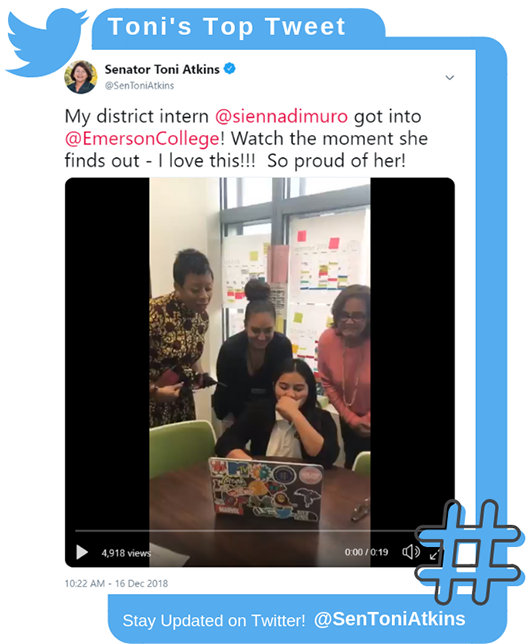 |
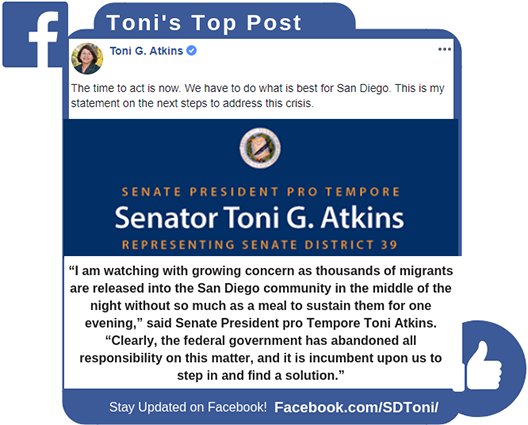 |
My district staff is always available to help constituents navigate a complex web of state agencies. If you’re having trouble working out an issue with any state agency, please call my office at 619-645-3133, and my staff will do everything in their power to help.
|
My District Staff |
Where to Find Me Online
|
My district office is located at 1350 Front St., Room 4061, San Diego, CA 92101.
|
|
|
|
|
|
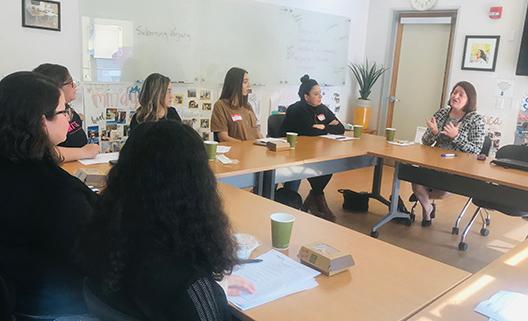 It was a joy to speak with the IGNITE San Diego College Council about my journey in public service and hear these young women talk about their ambitions. |
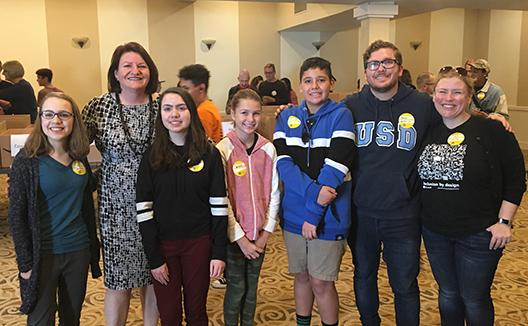 Spent a recent morning with Human Rights Campaign San Diego at their inspiring Day of Service event – more than 100 volunteers, including many young people, putting together care backpacks for local organizations that support homeless youth. |
|
|

